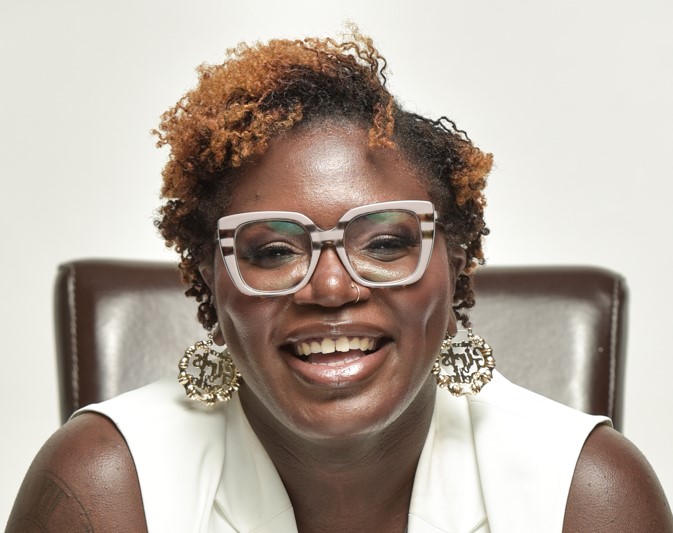
Ashley Ellis, co-founder of B.R.E.A.T.H.E. Collective
Over the past year, Ashley Ellis, co-founder of B.R.E.A.T.H.E. Collective, trained all Rise staff on restorative justice circle keeping. Rise also interviewed Ashley about restorative justice as part of our process for developing the report, Someone to Turn To: A Vision for Creating Networks of Parent Peer Care.
Here, she discusses how restorative justice (RJ) training can support healing and prevent and address harm. She responds to the question, “How can people feel safe enough to show up and ask for support without shame or fear of punishment?”
Building Safety
When you finish training in holding circle and RJ, you understand the power of being able to share your story in community, in a safe space. People grow through telling their story. I’ve heard someone say, “My whole life, it wasn’t okay for me to cry. I lost people in my life and never felt permission to express my emotions. It became anger because I couldn’t grieve. I took that out on people because I didn’t have another outlet. What I’ve discovered here is that it’s OK for me to name when I’m not OK, to cry, to be vulnerable. I could see other men in my community being vulnerable.”
You learn and grow in this culture and safe space that you helped to co-create by determining what is safe for you. You develop trust through hearing other people tell their stories. Those are some of the things that folks walk away with—they’re able to discover and create a sacred safe space so that they’re able to show up authentically and have honest, courageous, vulnerable dialogues, to share their stories and listen to other people. They learn how to take accountability—to say, “I created this harm, but I also want to do something to make it right. I want to heal this relationship.” It’s not just about apologizing or forgiving, but learning to take action—doing that with community.
Naming Harm
This sense of being in community is one of the biggest things people walk away with. I think about the African term, ‘Ubuntu’—“I am because you are.” In circles, you experience a deep sense of interconnectedness, that my relationship to you and to Earth and to everything around me matters in this moment. It is about building trust and deep relationships where people aren’t experiencing shame or punishment for acknowledging truths that they have created harm. In deep relationships, people are more likely to acknowledge and own harm they’ve created and to name harm they’ve experienced. Sometimes, we don’t want to even name something as harmful, because we think that is going to hurt somebody or we won’t be believed or we aren’t sure how people will hold our stories.
“Folks need proof that if they show up in their weakest moment, you’re not going to turn them in, manage them, or shame them.”
Ashley Ellis
Practicing Vulnerability
As much as we are trying to change the system, I believe we also have to change ourselves. If we change the system, but we are still replicating what that system represents, then what? We need to think about how to create a community that is strong and connected and is in constant practice of modeling vulnerability, sharing stories and asking folks how they’re doing. When that becomes a constant practice, people begin to trust you and trust the space. We have to do that transformative work.
We rely so much on systems that perpetuate harm. Part of it is because we don’t know the people in our community or our circle. With small circles, if five of us show up, maybe we don’t have what is needed, but between us, we could have connections to 10 circles—and in that way we do have what is needed. It’s about mutual aid, deepening relationships and modeling what it means to be vulnerable.
Transforming Individuals and Conditions
We have to do it not just through restorative justice, but transformative justice—not just healing the harm in a relationship, but transforming the conditions that created the harm in the first place. How do we transform or get rid of the system and build what needs to be in place, that will allow me to show up and say, “I don’t have my stuff together. I don’t have what I need. I’m not at my best. Can you watch my kids while I get myself together?” You don’t judge me and hold it over my head. There is no punishment. Imagine that—if people are so connected and community is able to show up.
Folks need proof that if they show up in their weakest moment, you’re not going to turn them in, manage them or shame them. Their story won’t be weaponized against them and used as a reason to call the system, causing further harm and disconnection. When people experience that and see that harm will not happen, they’re most likely to show up and ask for what they need. That helps to deepen trust and allows people to let their guard down. As a community, we can look for ways to share stories of transformative decision making.
